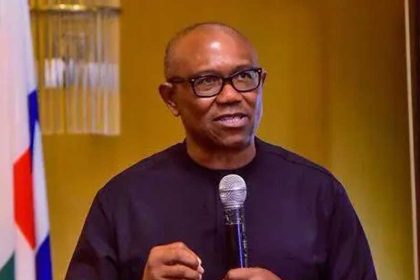

American technology companies are escalating complaints over regulatory challenges in Nigeria and Kenya, citing corruption, lax intellectual property enforcement, and aggressive digital taxation as major barriers to operations in two of Africa’s most promising tech markets.
A 2025 report by the U.S. Trade Representative (USTR) underscores growing friction between Washington and African nations, with firms like Amazon, Google, and Microsoft warning that these issues erode their competitiveness and deter investment.
The USTR’s Foreign Trade Barriers report identifies systemic corruption and weak IP protections as critical obstacles. In Nigeria, counterfeit software, pirated media, and routine demands for unofficial payments by officials disrupt business operations, according to the document. Judicial inefficiencies and political gridlock have stalled reforms, leaving licensed content providers vulnerable to revenue losses. Kenya, despite positioning itself as a digital innovation hub, faces similar critiques, with U.S. firms alleging they are undercut by local rivals engaging in bribery or sidestepping legal standards.
“Intellectual property enforcement remains inadequate due to chronically insufficient resources, porous borders, and corruption,” said Jamieson L. Greer, a USTR representative. The report emphasizes that these challenges persist even as both countries introduce contentious tax policies targeting foreign tech firms.
Kenya recently replaced its digital services tax with a 3% levy on gross revenues of non-resident companies earning over $38,800 annually from Kenyan users, a move critics argue penalizes firms without physical offices in the country. Nigeria, meanwhile, mandates income tax and value-added tax on digital services provided by foreign entities, significantly raising compliance costs since 2020. U.S. companies warn these measures could stifle market entry and innovation.
The findings arrive amid renewed pressure from the Trump administration, which has threatened to reinstate tariffs on African nations unless trade barriers are addressed by June 2025. While tariffs are temporarily paused, the deadline intensifies diplomatic efforts to resolve disputes. Nigeria and Kenya, both reliant on U.S. trade partnerships, now face balancing acts: attracting foreign investment while addressing demands for regulatory fairness.
Analysts note the tensions reflect broader global debates over digital sovereignty and equitable taxation. As African governments seek to maximize revenue from tech-driven growth, foreign firms argue that opaque regulations and graft undermine the very innovation these markets aim to foster. The outcome could shape not only U.S.-Africa trade relations but also the trajectory of Africa’s digital economy, which remains pivotal for job creation and economic diversification.
Send your news stories to newsghana101@gmail.com
Follow News Ghana on Google News








